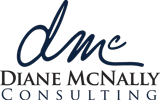A Cure for the Agony of Performance Review
By now, you have survived your 2017 performance review process, but the painful memories may linger.
“I love my performance review”, said no one ever!
So, why do we endure this exercise, year after year?
After 30+ years doing HR work, I struggle to recall a performance review process that inspired people; managers or employees. I can’t think of anyone who looked forward to it or really walked away feeling uplifted or engaged. But, I think things are starting to change; slowly, but changing, nonetheless.
I couldn’t be happier to see the trend toward continuous coaching instead of the annual performance “event”. No more lengthy forms to fill out and thank goodness, no more anxiety-producing annual meetings. Companies are replacing these archaic practices with more frequent and informal coaching sessions.
So, how can this be? What about goal-setting and addressing performance issues? What about documentation? Don’t you still need all of this?
Yes. You do. We all know the value of providing meaningful objectives to employees. We also know the importance of keeping good performance records. We need these to clarify expectations and to record feedback for future reference. The new coaching approach includes all of this, but takes a different approach to the feedback aspect of managing performance.
The goal of continuous coaching is to provide “in the moment” feedback, so employees can more immediately address issues or continue to add value. It also gives us an opportunity to provide real-time positive reinforcement and affirmation that we know promotes engagement and motivation. We all want to know how we are doing and want to hear positive feedback. Who wants to wait a year to hear it?
OK, back to the documentation thing. You still need to record your discussions with appropriate detail, but do so continuously and in shorter form. This approach gives you an on-going log of performance discussions and saves you the agony of having to recollect 12 months of performance.
There is no need to throw out your existing program. Start small; experiment. Here’s a roadmap:
- Consider a pilot program. All good innovation starts with a “test phase”.
- Discuss the pilot program with your team. Emphasize that this is an experiment and you want their feedback.
- Create a coaching calendar that prompts informal discussions every month or so.
- Emphasize the need to document the coaching discussions. Use your current forms or use an informal journal to record notes. No need to create different forms; remember this is an experiment, not the final program…. yet!
- Gather feedback during the process. If the coaching process works for you and your team, make the change!
You may need to make some adjustments in your policy and forms, and you should consider providing some training, so employees and managers understand your new approach. Keep it simple, so you can move quickly and easily to the new process.
I think you will find that your team will get on board quickly with this far more productive and engaging process.
Give it a try. What do you have to lose? You can always go back to the painful tradition of the annual review!


